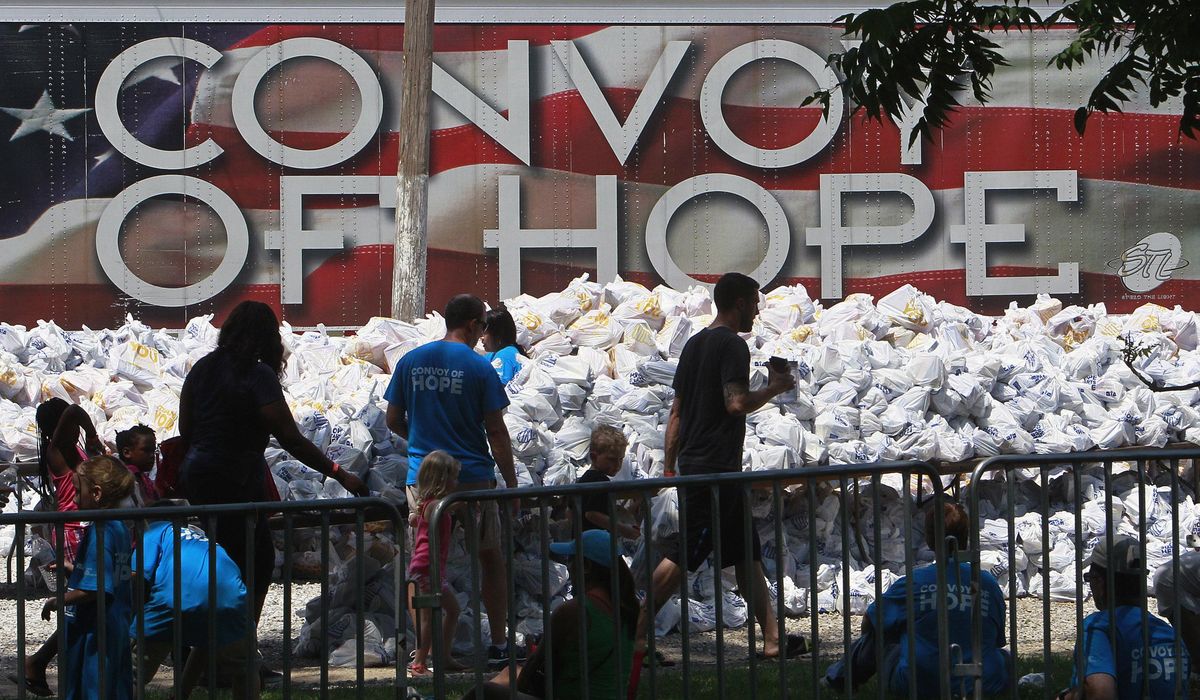


A new survey reveals that religious charities are no longer America’s most trusted, falling behind veterans’ charities and nonprofit hospitals for the first time.
BBB’s Give.org, also known as BBB Wise Giving Alliance, evaluates public charities and verifies their trustworthiness. Its 2023 donor survey reported that Americans’ trust in religious charities fell from 29% in 2021 to 26.1% last year — displacing religious groups from the No. 1 “most trusted” spot for the first time since the survey was first taken in 2017.
Veterans organizations (27.9%) and not-for-profit hospitals (27.1%) were the “most trusted,” followed by religious organizations, animal welfare groups (25.9%) and social service charities (24.9%).
Generational differences in trust of religious charities were apparent: “Matures,” aged 76-93, had a 35% “high trust” level; baby boomers, aged 57-75, had 29%; Generation X, aged 41-56, had 25%; millennials, aged 24-40, had 26%; and Generation Z, aged 18-24, had 18%.
Overall, 20% of donors said they have high trust in the charities they support, while 70% said such trust is important in giving decisions. According to the BBB Wise Giving Alliance report, “[w]e consistently find that there is space to build trust in the sector.”
The survey offered no explanation for the decrease in donor trust of religious groups.
But Warren Cole Smith, president of MinistryWatch.com, which tracks the nation’s 1,000 largest Christian ministries, said he was not surprised by the changes.
He cited generational differences between groups of donors and an overall loss of faith by the public in “all of our important institutions.” He also noted recent scandals, including sexual abuse scandals in the Catholic Church and the Southern Baptist Convention, as well as ministry scandals involving the late apologist Ravi Zacharias and megachuch Willow Creek Community Church.
“I think all of those scandals add up, they have some weight, I think they do cause people concern,” Mr. Smith said in a telephone interview.
“I am concerned that this slide in confidence in religious institutions is not over, but it’s going to continue,” he said. “Either we will recover that level of confidence in the institutions of civil society, religion chief among them, and a bright future is ahead of us, or we’re going to be in for years, if not decades, of turmoil in our country.”
The survey results are “unfortunate, because organizations like Convoy of Hope rely on donations to do the work that we do in this country and around the world,” said Ethan Forhetz, vice president of public engagement for the Christian charity.
Convoy of Hope raised $436 million in 2021, according to an IRS filing, making it one of the nation’s larger faith-based charities.
“We understand that we can’t change the collective thinking of a group or the population by ourselves,” Mr. Forhetz said in a telephone interview. “But what we can control is what we do on a day-to-day basis, and we do our utmost to maintain the highest ethical standards that we can.”
Mr. Forhetz said a general decline in faith among Americans may be a factor. He said his organization hopes younger donors will “do more to research individual charities rather than just lump everybody together, and then make decisions based on what that research shows them.”
The BBB’s Give.org electronic survey canvassed more than 2,100 adults in the United States and, in a separate panel, more than 1,000 adult Canadians. It has a margin of error of plus or minus 2 percentage points at a 95% confidence level.
The full report is available at https://give.org/docs/default-source/donor-trust-library/2023_fallwinter_dtr_report_final.pdf.
